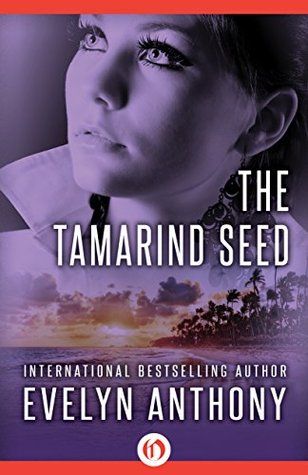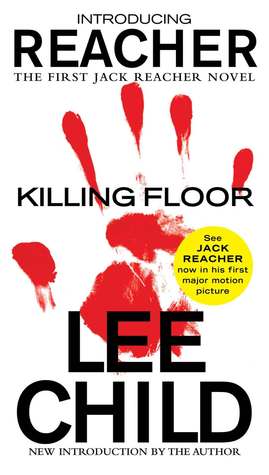The Tamarind Seed by international
bestselling author Evelyn Anthony was made into a 1974
movie starring Julie Andrews, and is now
finally hitting the e-shelves as an ebook. In this suspenseful thriller of Cold
War espionage, UN assistant Judith Farrow becomes embroiled in an international
plot when she’s just trying to take some time off in Barbados.
PROLOGUE
He had sent his secretary off duty; she was a conscientious
girl, who loved her work and never minded staying after hours. He had often
described her as invaluable, but that evening her eagerness to stay late and
help him was a maddening attribute. There had been a little battle between
them, which left him victorious and alone in his office. He waited for a few
minutes till he was sure she had gone. Then he went and turned the key in his
door. It was dark and the windows were spattered with snow; he pulled the
curtains and switched on the desk lamp. There were papers on his desk; it was
their untidy presence that had worried his secretary, who felt it was beneath
his dignity to wander through the building and return them to filing. These
were of no interest to him. He pushed them aside, and unlocked the centre
drawer of his desk, using a key that hung on a chain attached to his waistcoat.
It was the only key to that particular drawer. He took out a file, with a red
sticker across the top left-hand corner.
He placed it directly under the
desk lamp, and then, page by page, he began to photograph the contents, using
an object that was in fact a miniature camera.
At one moment he had stopped,
frozen to immobility by the sound of someone walking down the corridor past his
office. His eyes were fixed on the door handle. He had a moment of crazy panic,
common to the fright experienced in a nightmare, that he might have broken the
habit of years and forgotten to lock the door. If the footsteps stopped, if
there was a knock on the door and then it opened … But nobody knocked, nobody
turned the knob. The feet went past and the sound of them grew muffled, until
he knew that what he was hearing was the bounding of his own excited heart.
Within five minutes he finished taking the pictures, rearranged the papers,
closed the file; only then did he permit himself to go to the door and make
sure that disaster could not have overtaken him. He tried it, and he smiled. It
was secure. He had not forgotten.
When he left his office, the desk
was clear, the middle drawer locked, the unimportant documents returned to
their place in the filing room, and the file with the top security red sticker
lodged in the safe on the floor below.
CHAPTER ONE
‘Ladies and gentlemen, we are now approaching Barbados. We
shall be landing at Seaways Airport in approximately ten minutes.’
The pilot sounded bored; a small
child in the rear of the tourist class stopped crying for the first time in two
hours. Judith knew because she had timed it by her watch; the irritable weeping
rose in pitch and then just as abruptly stopped, as if the disorientated baby
understood that the journey was at an end. It couldn’t have felt less
enthusiastic than Judith Farrow. The other passengers were leaning towards the
windows, craning to see the island in its cushion of bright blue sea. She
glanced across her neighbour and saw the small landmass, incredibly green in
what must be burning sunshine. In spite of herself, a little interest, even a
suggestion of excitement, stirred at the sight. It was said to be very
beautiful. Very peaceful, remote from the hustle of the larger Caribbean
islands, a sleepy paradise, where someone like herself could re-assess the
chaos of her life and try to create some kind of order. At twenty-eight her
pattern of living had disintegrated into a sordid undignified mess. Take a
holiday; that was the advice given by her boss Sam Nielson. Get right away from
UNO, New York, your friends, the whole background. He was a kind man and they
had a pleasant relationship in which he was able to indulge a harmless
paternalism towards a woman only a little older than his own daughter, Nancy,
with whom Judith shared a flat.
Nancy, tough, determined, as
unemotional about her numerous love affairs as any male sophisticate, had
suggested the same remedy. Flight.
And without wanting to or really
caring, Judith did as they advised. They assured her she would feel better
after the first few days. She would begin to see it in proportion. She saw the
island slip from view behind the aircraft’s wing as it banked before the final
descent to land. Like hell she would feel better. Like hell a holiday restored
lost faith, illusions, self respect. And yet the Nielsons might be right; when
real tragedy struck her four years earlier, she had pulled up all her roots
from England and gone to a new life in the United States. The death of her
husband had been a tragedy in the accepted sense of the word; certainly in the
conventional sense. The loss of the man she loved and had been living with for
six months was only a trifle by comparison. Her affair with Richard Paterson
didn’t deserve more than fourteen days’ healing time.
[…]
The island was ablaze with flowers.
Hibiscus, pink and white oleanders, the glorious purple bougainvillaeas rioted
over walls and rooftops, and most beautiful of all, the scarlet poinsettias,
usually seen as a spindly plant in a florist’s at Christmas time, flared in a
great bushes, hedging the roads with banks of blazing colour.
The taxi driver talked throughout
the journey, but with an accent so thick it made him unintelligible. Judith
couldn’t understand more than a few words. And then the sea was visible;
sapphire blue with snow-white running surf. Palm trees soared into the sky. The
hotel was another surprise. It was a series of small cottage bungalows,
surrounded by the rich tropical gardens she had seen everywhere during the
drive from the airport.
An aquamarine swimming pool
shimmered in the centre of a paved patio, banked by brilliant flowers; small
tables clustered round it topped by striped umbrellas, blooming like crazy
mushrooms, and a coal-black barman stood behind the bar, rattling a shaker as
if he were playing the maraccas.
She registered; now she was feeling
very hot. Her clothes were sticking to her, and when she saw herself in the
glass across the reception desk, she realised with surprise that the pale,
exhausted face, framed in lank brown hair, was how she really looked.
She looked round the little
bungalow; it was bright, with white walls and brilliant chintzes, a balcony
overlooking the beach, and a bedroom with an air conditioner. She was pleased
to find a tiny kitchen, completely equipped. She went into the bathroom, stripped
and got under the shower, letting the water soak her head and body. Her skin
was unattractively white, compared with the brown figures she had seen lying
round the pool. The water beat against her, battered her face and poured in a
torrent between her breasts. The sense of nakedness brought unwelcome memories
back. She wrenched the tap to ‘off’ and wrapped herself in a towel. Making love
to Richard Paterson was the last thing she could afford to remember. She dried,
and wandered into the bedroom. The sun was going down, and the sky had a deep,
grey line coming up as if someone were slowly pulling a blind from below. It
would soon be dark. She felt so tired that she dropped back on the bed;
remembering the wet towel, she threw it off, and covered herself with the
sheet. Later, she could ring down and have something sent up, a sandwich, some
coffee.
She was still deciding what to
order when she fell asleep.
When she woke, it was pitch dark,
and the luminous hands on her watch said 2 a.m.
There was a man in the adjoining
bungalow, but he had not been sleeping. He saw the light flash on from the dark
windows on his right, and stay on, making a yellow beacon in the night. He had
given up trying to read, long after he had abandoned the attempt to sleep, and
gone out to sit on his balcony and smoke. It was noisy outside; the sea pounded
on the beach only twenty yards away, and a small, persistent noise shrilled
from the trees growing along the sandy shore line. It sounded like a kind of
bird. He identified the crickets, with their tiny chirping roar, and the
prosaic hum of outside air conditioners. It was the second night he hadn’t been
able to sleep. Sleep always eluded the pursuer. All his life he had suffered
from periods of insomnia; without warning, and unassociated with stress, he
would find it impossible to sleep for several days. Just as abruptly the cycle
would break. He had learned to accept these occurrences without recourse to
drugs.
He had never been to the West
Indies before; it amused him to choose what was described as a capitalist
playground, sustained by the sweat of the black proletariat, because he had an
ironic twist of mind. It was a choice which was certain to offend others, only
too eager to criticise. He had always thrown bones of contention to his
enemies, and walked away while they fought over them. He sat in the darkness,
smoking and waiting, staring upwards at the glittering fragmentation of stars
in the sky. Men had travelled through the infinite space and proved it finite;
they had hurtled past the stars and found them empty, ugly. The enormous white
moon had been violated by the spaceman’s boot. He thought that it would never
be the same again. Nothing remained immutable in that old phrase applied to the
stars. Everything changed; the wise welcomed it and stuck out to swim with the
stream.
Others resisted, damming progress
with human bodies. It was no less true, because it was so bitterly ironic, that
the children of revolutionary change, became the stiffest of reactionaries.
Backwards. That was where the current was turning, and he felt it taking this
direction, well below the surface, but with increasing force. He could have
taken a woman with him; he hadn’t wanted one. At thirty-nine his body was as
tired as his sleep-starved brain. He could have women whenever he wanted them.
Too easily, meaning nothing. The bungalow adjoining his was empty; he hadn’t
realised until the lights went on that there was someone in it. He heard
noises; he had well tuned ears. They picked up the sound of someone moving
round inside, a door opened and shut. Light broke out, turning the balcony
yellow. The doors slid back and a woman walked through and towards the rail,
where she leaned for a moment, looking out over the black sea where the broad,
rippled track of moonlight narrowed into the horizon. The figure was straight,
with young lines; long hair hung down to the shoulders. He couldn’t see her
face. He stayed still in the darkness, watching, keeping the red glow of his
cigarette hidden at his side. She turned, still with her back to him, and went
inside. He was sorry. It made his insomnia less lonely knowing that at that
hour someone was awake and near.
Then he heard the door of her
bungalow shut, and thought in surprise that she had gone outside. Minutes later
there was a splash. Of course. She had gone to the swimming pool.
Down by the patio one yellow light
was burning over the shuttered bar. There was no need for it. The huge white
moon hung in the sky, surrounded by stars. Looking up, Judith found every
cliché speeding through her mind. The moon was like a pearl, the stars like
diamonds; the palm trees waved and the crickets sang. It was all so corny and
impossible until one saw the reality. Then it could never be described without
using a coinage of words which had become debased. She dived into the pool, and
started swimming, up and down, very lazily, her mind occupied with playing the
game of metaphors, trying to think of ways to describe the night.
‘Evenin’. Lovely evenin’.’ It was
the same odd accent, less exaggerated than the taxi driver’s speech, but
unmistakable. She turned and saw a man standing by the pool’s edge. He wore a
cloth cap, which he took off.
‘Good evening,’ Judith said. ‘Are
you the night watchman?’
‘Yes, Mam.’
‘I’m staying here,’ she said. ‘I
couldn’t sleep. It’s so lovely and warm.’
‘Yes, Mam,’ the man said. ‘Right
warm it is.’ He put his cap on again, saluted her with a torch and moved away.
Judith went on swimming.
The man had come quietly round the
edge of the building, where he could see the figure slipping through the
lighted water, without being seen. He stood and watched her, until she climbed
out, and then he got a look at her under the yellow light, as she dried her
legs and rubbed her body with a towel. She was young. She had a pretty face. He
went back and let himself into his bungalow before she came up the path. He had
a bottle of whisky in his sitting room. That was one American habit he had
picked up. He drank Scotch in preference to vodka. Some people would have said that
was when the rot had started. He smiled to himself, filled a glass half full
and went back to his balcony. The light next door went out.
Buy The Tamarind Seed at Amazon
Excerpt was provided by Open Road Media.
Girl Who Reads is an Amazon advertising affiliate; a small commission is earned when purchases are made at Amazon using any Amazon links on this site. Thank you for supporting Girl Who Reads.

.png)


.png)
.png)



















